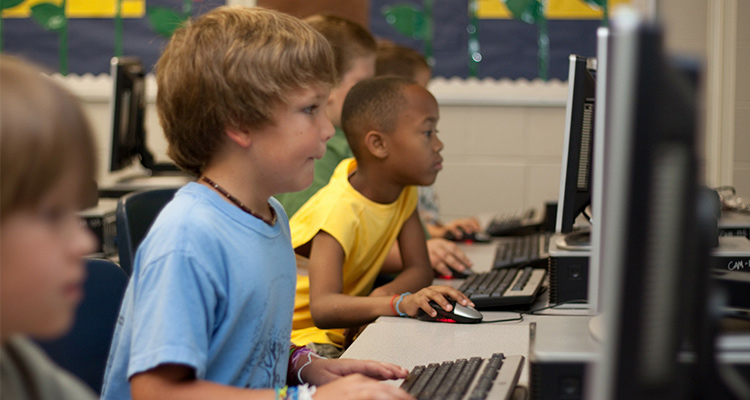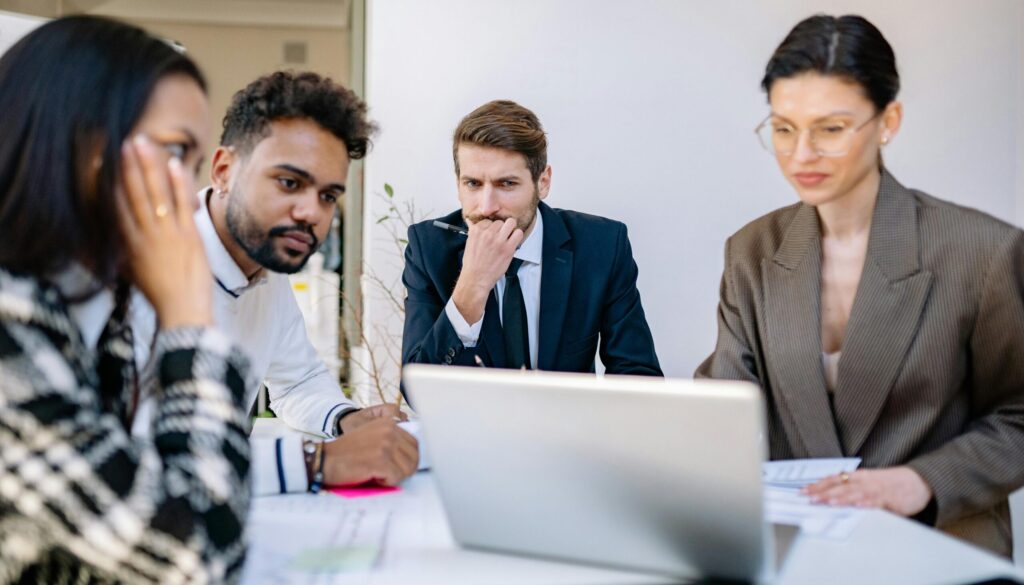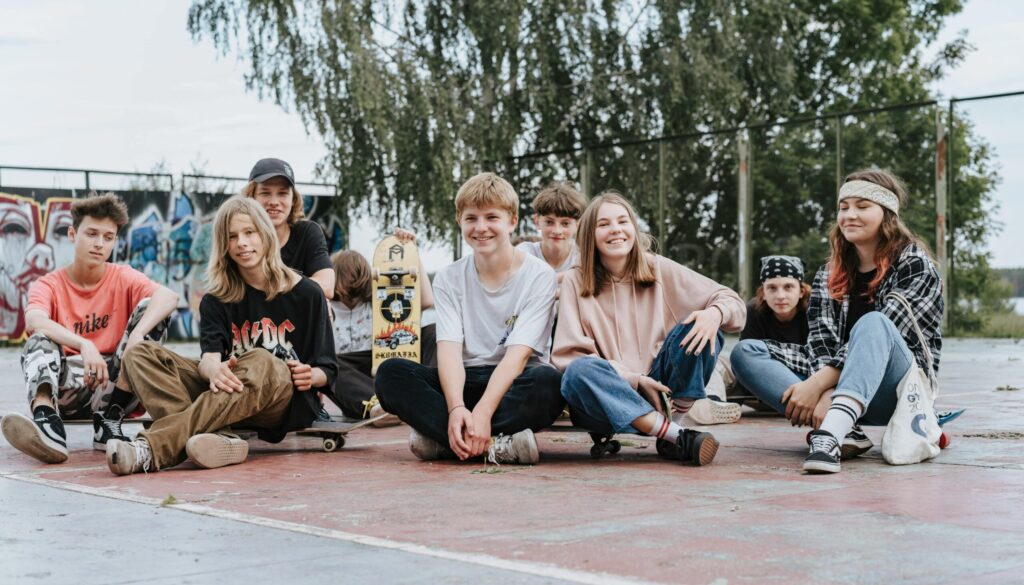At dothegap we believe in non formal education and learning through experience. But do you know what it’s all about? Do you understand its importance? Throughout this post, we’ll give you a little introduction about non formal education and we’ll show you the benefits of activities like exchanges. Keep on reading!
Differences between formal, informal and non formal education
The term “non formal education” and its recognition on a global scale came about in the 1960s, when consolidated educational institutions had to face an economical crisis and received questions about their lacking ability to adapt to a new society.
UNESCO held various summits led by expert, Philip H. Coombs, to confront the crisis and propose solutions. This resulted in the publication of Learning to Be (The Faure Report, UNESCO 1972), where they paved the way to the future of education.

It wasn’t until 1973 that Philip H. Coombs, Prosser and Ahmed established definitions of formal, informal and non formal education:
- Formal education has a hierarchical structure, organised in chronological order within the education system. It starts in primary school and ends in university. Moreover, it includes programmes or courses dedicated to technical and professional education.
- Informal education is the vital process whereby every individual acquires attitudes, values, skills and knowledge. These are gained through daily experiences and from influences or resources in your surroundings, whether it’s from your family and friends or from the media.
- Non formal education is all organised education activities that are outside the formally established system. It can work separately or within a larger activity, according to the participants or learning goals.
Characteristics and importance of non formal education
Non formal education isn’t a replacement to formal education, which is key and fundamental to the growth of the person, however, it can compliment it by covering needs or certain aspects that the regulated institution lack.
UNESCO, for example, emphasises the flexibility of non formal education and how it allows for more personalised learning to be developed for each person. In fact, this would be the most ideal model for them.
How is it flexible? Non formal education is open to any age, origin and personal interest. Moreover, it’s a relatively voluntary type of education, with diverse teaching methods and its end goal isn’t a degree, but rather pure learning.

This idea is key for Jimmy Wales, for example. The founder of Wikipedia is one of this biggest defenders of non formal and informal education. He insists on continuous learning throughout life in a voluntary and experiential way to create better citizens. You can learn more about his views in this video.
Via non formal and informal education, which have a great advantage thanks to modern technology, we can understand the world around us much better. Above all, everything we discover will stay embedded in our brains, because we’ve had our own drive to learn.
That said, the benefits of non formal education can be summarised as follows:
- Helps grow and mature, on a personal level, as well as within society. In many cases, teamwork or coexisting, can play an important role.
- By developing the skills of each individual, you boost their self-esteem.
- The capacity to learn and discover on your own develops a healthy critical attitude of your surroundings, social norms and power mechanisms.
- Boosts job placement opportunities and encourages self-employment.
Now that you have a better understanding of non formal education and its learning possibilities via experience, wouldn’t you agree that it’s pretty important?
At dothegap, we encourage you to incorporate exchanges as a way of conducting non formal education and offer your students or members an enriching experience on many levels.
In addition to the act itself, the exchange, which may focus on anything from music to sport, style or gastronomy, participants are outside their habitual surroundings and are forced to face new situations.
With this in mind, at dothegap, we believe in exchanges that go above and beyond just learning a language. And an exchange on a national level is just as enriching as one done abroad. The reason? Because throughout the activity you learn about the place and the people you meet, but you also acquire new tools to help you in your day-to-day routine or to establish valuable social connections.
After an exchange, you’ll carry with you forever all these aspects of learning, and all the skills and knowledge you’ve acquired. So, if you’re interested or have any doubts, get in touch with us. We’ll be happy to assist you!






45 Comments. Leave new
In this time corona virus ,made more more difficult for the nation of the many countries.
Some News tell to people of the country
,it makes problem until six months long.
So to get help from non informal learning
System during this time is so important.
Thanks for your comment. Yes, you are right, in this case our community will help you to meet people all over the world to live cross-cultural activities. We will be happy to welcome you!
This information is well written and has helped me write my assignment on the roles on non formal learning.
Happy to have being useful for you!
Good comments
Thanks so much Edwin, happy our content is interesting for you.
Well written
Thanks!!
Thanks now I have a broader ideas about non formal
Thanks to you, in September we will publish a new post about formal, nonformal and informal education. Hope you like it!
Thanks for your useful information
Is non formal education a substitute or a parallel way of formal education?
Non formal education helps to understand the world and to develop abilities like respect and tolerance for other realities, both educations are complementary and should be trained.
Its very important notes that makes me aware
Yes, we have several post about formal, non formal and informal education. Thanks for reading us!!
Who is the author of this post?
Hello Emma, this post has been written by our community manager. We have 3 post about this item. The last one has been written by an expert in education.
In this pandemic, how would one get in touched with resource personnels to help develop the skills
Learning from experience is something we always do. Meet personally right now is difficult with the pandemic but you can start getting in touch, digitally, with people to start preparing your next exchange. Be sure we will go back to travel :))
How has non formal education led to acquisition of 21st century skills
Thanks for your comment Daniel. Learning from experience is so important that is the only learning we do not forget 🙂
Great information, does this apply to non formal curriculum?
Non formal education means learning from experience so, the more experience you have the better curriculum you get :)). A cv is the person and everything counts.
Helping non formal shld be adopted
Yes, Mwebaze, we totally agree 🙂
Good information, but is non formal education basing on non formal curriculum (do they have a relationship)
Hi Mwebaze, the truth is that an exchange without any curricular activity belongs to “informal education” which means learning from experience. Quite important in our education.
With non formal education you develop “soft skills” that is part of your CV as shows capabilities like: empathy, critical thinking, respect, tolerance and much more :)) quite important, in our opinion.
If we take a look at the Indian Education System since the time of Independence, it can broadly be classified into 4 categories, to know more visit
https://blog.verzeo.com/indian-education-system/
Thanks so much Meghana, quite interesting information.
Quite interesting Meghana, thanks for the information.
Thank you so much,
It’s amazing
Thanks to you Onesmus 🙂
Good day, happy to have come across your establishment .preparing for a community entry program on Sunday, to start a non formal education program in our local community. Will need more information and resources. Thank you..
Hi, please contact us by email so we can get more information about how we can help you. Write us to hello@dothegap.com
great i love it thanks
We will be happy to welcome you at dothegap.com, our community to meet people worldwide and enjoy all kinds of cross-cultural activities :))
Thank you for the information. Very informative. keep up the good work. We now need non formal education more than ever
well done. We now need non formal education more than ever. Keep up .
Thanks so much Winnie. Let’s start by living more cultural exchanges that provide us with life-long experiences.
How about economic input for non formal education? How they keep sustainability?
Is there any data or stats, for example how much people willing to pay or invest in order to take non formal education?
Hi Johan, interesting questions, non formal education is based on learning from experience so it should not cause a big cost. Sorry we do not know if there are statistics about it. Our proposal is based on learning multicultural skills by enjoying cultural exchange from family to family which means at minimum cost as you do not have to pay for the stay.
I enjoyed reading this blog. Learned so much from this! Keep on posting
Thank you! happy to know that you enjoyed this post. You can find more at https://www.dothegap.com/en click on BLOG 🙂
You’ve written it so nicely, and you’ve come up with some great ideas. This is a fantastic post!
Thankyou!! Happy you like it 🙂